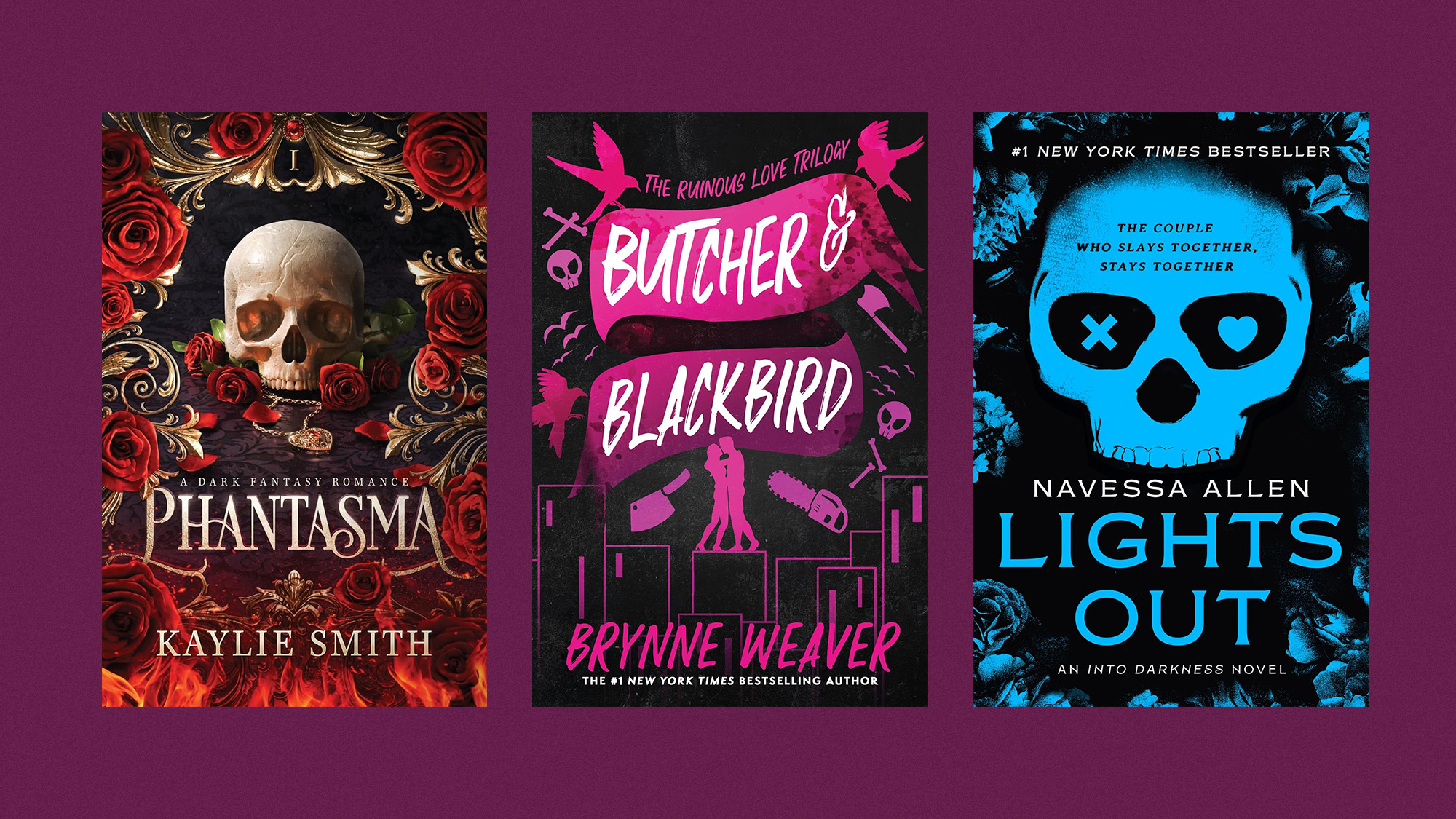A national writers nonprofit is the latest front in the war against generative AI
NaNoWriMo refuses to condemn the use of AI for its annual challenge. Writers are not having it.


A free daily email with the biggest news stories of the day – and the best features from TheWeek.com
You are now subscribed
Your newsletter sign-up was successful
The war between creatives and advanced generative artificial intelligence like ChatGPT has hit the shores of one of the world's most popular communities. A 25-year-old nonprofit, known for its month-long novel-writing challenge dubbed NaNoWriMo, has enraged popular writers and avid participants with its position on using AI for the challenge.
NaNoWriMo says condemning AI is 'classist and ableist'
NaNoWriMo, an acronym for National Novel Writing Month, is an annual 30-day creative writing challenge for participants to write 50,000 words of a novel. Since it began in 1999, the program has attracted novices and expert writers alike. The challenge is an intense sprint towards the first draft of a full-length novel in any genre that now attracts "hundreds of thousands of people around the world," the organization says. Their website "tracks words for writers like Fitbit tracks steps," and volunteers host local events, chat forums and virtual meetups for writers. "Valuing enthusiasm, determination and a deadline, NaNoWriMo is for anyone who has ever thought about writing a novel," the nonprofit behind the challenge said. At the end of the process, writers could revise the work and head towards releasing a finished product, either traditionally or through self-publishing. Others simply count it as a personal achievement.
The firestorm against the organization kicked off when it posted a statement on its website saying that it did not "explicitly support" or "explicitly condemn" any approach to writing, "including the use of AI." NaNoWriMo would "recognize and respect writers who believe that AI tools are right for them." To categorically condemn the use of artificial intelligence "would be to ignore classist and ableist issues surrounding the use of the technology," NaNoWriMo said in the original post, adding that issues around AI usage "tie to questions around privilege." The organization argued that "not all writers have the financial ability to hire humans to help at certain phases of their writing" and that for some, AI is a practical solution, "not an ideological one."
The Week
Escape your echo chamber. Get the facts behind the news, plus analysis from multiple perspectives.

Sign up for The Week's Free Newsletters
From our morning news briefing to a weekly Good News Newsletter, get the best of The Week delivered directly to your inbox.
From our morning news briefing to a weekly Good News Newsletter, get the best of The Week delivered directly to your inbox.
"Not all brains have the same abilities, and not all writers function at the same level of education or proficiency in the language in which they are writing," NaNoWriMo said. "Some brains and ability levels require outside help or accommodations to achieve certain goals."
Their latest position goes beyond the answer NaNoWriMo provided a year ago when it said writers were welcome to use AI like ChatGPT to "assist your creative process" but that using it to "write your entire novel would defeat the purpose of the challenge."
'Vile, craven, and unconscionable'
After NaNoWriMo posted the statement, it went viral as creatives took to social media to lambast the position. Four members of the nonprofit's writers' board publicly stepped down, including science fiction and fantasy writer Daniel José Older and fantasy writer Cass Morris. One of the organization's sponsors, Ellipsus, which is openly opposed to using generative AI in its products, officially withdrew its sponsorship because NaNoWriMo's statements about AI "antagonizes vs. fosters a constructive dialogue," the founders said. "Most importantly, it overlooks generative AI's largest offense: the wholesale theft of authors' works and a lack of respect for the craft of writing."
Creatives across many industries have been openly taking a stance against large language models that they say are cannibalizing their content. On his Substack, Older called the nonprofits' position on generative AI "vile, craven, and unconscionable." The organization is "harming writers" and "harming the planet," he said. He rebuked the company's follow-up statement that tried "to put distance between what you're talking about and generative AI" and pointed out that another sponsor, ProWritingAid, "is explicitly a Gen AI endeavor." Finally, he condemned their "heinous reconfiguring of language used to fight actual injustices into a shield to cover your transparently business-based posturing" as "unforgivable."
A free daily email with the biggest news stories of the day – and the best features from TheWeek.com
Other writers and long-time NaNoWriMo community members found the assertion that condemning AI was ableist particularly offensive. The organization is "basically asserting that disabled people don't have what it takes to create art when they trot out the lie that scorning AI is ableist," C. L. Polk, author of the Hugo-nominated fantasy series "The Kingston Cycle," who identifies as disabled "along multiple axes," said on Bluesky. "Saying that disabled people need unremarkable and unoriginal writing is a pile of horseshit."
Theara Coleman has worked as a staff writer at The Week since September 2022. She frequently writes about technology, education, literature and general news. She was previously a contributing writer and assistant editor at Honeysuckle Magazine, where she covered racial politics and cannabis industry news.
-
 The Olympic timekeepers keeping the Games on track
The Olympic timekeepers keeping the Games on trackUnder the Radar Swiss watchmaking giant Omega has been at the finish line of every Olympic Games for nearly 100 years
-
 Will increasing tensions with Iran boil over into war?
Will increasing tensions with Iran boil over into war?Today’s Big Question President Donald Trump has recently been threatening the country
-
 Corruption: The spy sheikh and the president
Corruption: The spy sheikh and the presidentFeature Trump is at the center of another scandal
-
 Book reviews: ‘Hated by All the Right People: Tucker Carlson and the Unraveling of the Conservative Mind’ and ‘Football’
Book reviews: ‘Hated by All the Right People: Tucker Carlson and the Unraveling of the Conservative Mind’ and ‘Football’Feature A right-wing pundit’s transformations and a closer look at one of America’s favorite sports
-
 Book reviews: ‘Vigil: A Novel’ and ‘Fear and Fury: The Reagan Eighties, the Bernie Goetz Shootings, and the Rebirth of White Rage’
Book reviews: ‘Vigil: A Novel’ and ‘Fear and Fury: The Reagan Eighties, the Bernie Goetz Shootings, and the Rebirth of White Rage’Feature Taking on the space between life and death and a look back at a 1984 shooting that shocked New York City
-
 The best fan fiction that went mainstream
The best fan fiction that went mainstreamThe Week Recommends Fan fiction websites are a treasure trove of future darlings of publishing
-
 Book reviews: ‘The Mattering Instinct: How Our Deepest Longing Drives and Divides Us’ and ‘Family of Spies: A World War II Story of Nazi Espionage, Betrayal, and the Secret History Behind Pearl Harbor’
Book reviews: ‘The Mattering Instinct: How Our Deepest Longing Drives and Divides Us’ and ‘Family of Spies: A World War II Story of Nazi Espionage, Betrayal, and the Secret History Behind Pearl Harbor’Feature The pursuit of ‘mattering’ and a historic, devastating family secret
-
 The best dark romance books to gingerly embrace right now
The best dark romance books to gingerly embrace right nowThe Week Recommends Steamy romances with a dark twist are gaining popularity with readers
-
 Book reviews: ‘American Reich: A Murder in Orange County; Neo-Nazis; and a New Age of Hate’ and ‘Winter: The Story of a Season’
Book reviews: ‘American Reich: A Murder in Orange County; Neo-Nazis; and a New Age of Hate’ and ‘Winter: The Story of a Season’Feature A look at a neo-Nazi murder in California and how winter shaped a Scottish writer
-
 Book reviews: ‘The Score: How to Stop Playing Somebody Else’s Game’ and ‘The Sea Captain’s Wife: A True Story of Mutiny, Love, and Adventure at the Bottom of the World’
Book reviews: ‘The Score: How to Stop Playing Somebody Else’s Game’ and ‘The Sea Captain’s Wife: A True Story of Mutiny, Love, and Adventure at the Bottom of the World’Feature Comparing life to a game and a twist on the traditional masculine seafaring tale
-
 How to rekindle a reading habit
How to rekindle a reading habitThe Week Recommends Fall in love with reading again, or start a brand new relationship with it
